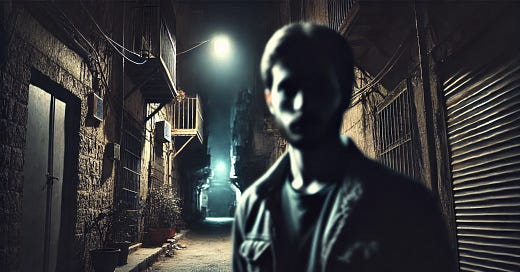“Knowledge Is the Enemy of Dictatorship”
A Syrian translator living in exile in Dubai helps spread banned ideas about freedom, rights, and equality back home
By the time Abdel* was in his early twenties, the Damascus of his childhood—ancient, bustling, and fragile—had begun to collapse. The grinding war transformed Syria into a patchwork of frontlines and hollowed-out cities. But amid the ruins, Abdel found his own quiet form of civil disobedience: words.
Today, at 31, Abdel lives in Dubai, far from the family home in Damascus’s old city, where he was raised in a conservative household. An engineer by training with a master’s degree, he works not on machines but on minds, translating articles and books for Ideas Beyond Borders.
“Knowledge is the enemy of dictatorships,” Abdel tells me over a Zoom call, reflecting on his years of clandestine work translating articles on democracy, LGBTQ rights, and women’s equality into Arabic. “They fear enlightenment.”
The journey began out of financial necessity. In 2013, as Syria’s economy cratered, Abdel, still a student, started translating movies and articles for extra pocket money. Dollars, not Syrian pounds, were the currency of survival. But what began as a side hustle became something far more profound when he stumbled across a Facebook post by Ahmed Al-Rayyis, the Director of Translation at IBB, seeking translators for scientific and human rights texts.
Abdel signed up immediately. “I knew I wanted to follow people who were doing something meaningful,” he says. What followed was years of work done mostly in secret, translating countless words, knowing that each sentence carried the risk of official reprisal.
He wasn't wrong to be cautious. By 2019, the Syrian security services began summoning IBB’s volunteer translators for interrogation. Abdel’s close friend, Maher, was one of them—hauled in, pressured to renounce his work, and forced to sign a statement pledging to stop. He didn’t. Instead, Maher continued translating under a pseudonym, carefully masking his identity.
Abdel himself was never directly called in, but the specter of danger was constant. “We all felt it,” he says.
The Syrian government, like many authoritarian regimes, tightly controls information, particularly anything that might encourage free thought. While then-President Bashar al-Assad flirted with opening up the country in the early 2000s, those days quickly gave way to repression as the war spiraled.
“In school, they gave us the least English they could,” Abdel explains. “Anything that might expand your view of how other countries live was avoided.”
For Abdel, translation is not just about language, but about smuggling ideas into places starved of alternate perspectives. “In the Arab world, we always go from military dictatorship to Islamic dictatorship,” he says. “But knowledge is a weapon. It’s how we fight back.”
In February 2022, Abdel made the wrenching decision to leave Syria, fleeing the deepening economic collapse and the omnipresent threat of surveillance. Dubai offered one of the few accessible visas for Syrians, and while he still dreams of eventually joining his sister, a dermatologist in Atlanta, or working in Germany—where he had begun studying the language—Dubai was his lifeline.
His relocation was bittersweet. “I can’t live without Syria,” he admits, recounting the three return visits he’s made since leaving. His father remains in Damascus, and Abdel is working to bring him out. Yet, despite the risks, the pull of home is strong. “I have a lot of memories there,” he says, “but every visit carries a feeling of threat.”
Abdel’s family, once strictly traditional, has evolved in the face of Syria’s long crisis. “The war changed everyone,” he reflects. While still attached to their cultural and religious roots, his family now views his work with more openness. “At first, they didn’t understand why I was doing this. But after seven years, they accept it.”
In Dubai, Abdel has found a community of fellow Syrians and colleagues who share his passion for knowledge and freedom. Some of his closest friends from IBB also relocated to the UAE, creating a small but close-knit network.
When I ask which translations have meant the most to him, he doesn’t hesitate: articles on women’s rights, LGBTQ issues, and human rights. “These topics are so sensitive in our societies,” he says. “But because I know the suffering of these communities, I’m proud to be part of spreading these ideas.”
Abdel is clear-eyed about the limitations of what he can achieve through his work. Still, in a region where censors and secret police have long tried to control what people can read or say, the simple act of translating an article on equality into Arabic is a radical gesture.
For young Syrians who want to follow his path, he offers simple but poignant advice: “Open up to the world. Live your life. See the world through your eyes—not your community’s or your family’s.”
“The best thing I got from Ideas Beyond Borders is the people—the community. Enlightened, educated people with beautiful souls. That’s how we’re making change.”
*Names have been changed for safety reasons. This article was written by Reid Newton.






“Open up to the world. Live your life. See the world through your eyes—not your community’s or your family’s" such important advice for us all! Many thanks for such an eye opening, informative article. I feel much gratitude to the people who continue such vital work. Long may they continue to do so 🙏